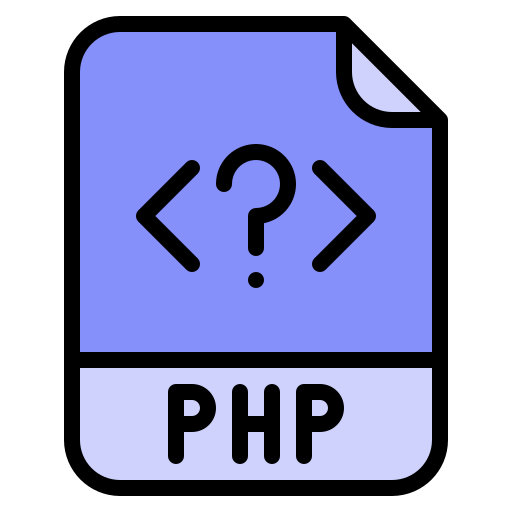
Introduction
Code quality is a term used to describe the level of excellence achieved in a software program. It is determined by the degree to which a program meets its design objectives. Code quality is not only important for the success of a program, but also for the safety and security of users. Programming language is the set of instructions used to create a software program. Different programming languages have different syntax and features, which can affect the quality of the code produced. In this article, we will discuss how to analyze code quality based on programming language.
Factors to Consider When Analyzing Code Quality
When analyzing code quality, there are a few key factors to consider.
Readability
Readability is an important factor when analyzing code quality. It refers to how easily a program can be read and understood by a human. To ensure readability, there are a few key elements to consider.
Syntax
Syntax is the set of rules that dictate how the code should be written. Different programming languages have different syntax rules. It is important to be familiar with the syntax of the language you are using to ensure that your code is readable.
Naming Conventions
Naming conventions are the rules used to name variables, functions, and other elements of the code. It is important to follow the naming conventions of the language you are using to ensure that your code is readable.
Comments
Comments are lines of code that are used to explain what the code is doing. They can be used to make the code easier to understand. It is important to use comments in your code to ensure that it is readable.
Reliability
Reliability is an important factor when analyzing code quality. It refers to the degree to which a program can be depended on to do what it is supposed to do. To ensure reliability, there are a few key elements to consider.
Error Handling
Error handling is the process of detecting and responding to errors in a program. It is important to handle errors correctly to ensure that the program is reliable.
Testing
Testing is the process of executing a program to ensure that it works as expected. It is important to test a program thoroughly to ensure that it is reliable.
Debugging
Debugging is the process of finding and correcting errors in a program. It is important to debug a program thoroughly to ensure that it is reliable.
Efficiency
Efficiency is an important factor when analyzing code quality. It refers to the degree to which a program uses its resources effectively. To ensure efficiency, there are a few key elements to consider.
Performance
Performance is a measure of how quickly a program can execute its tasks. It is important to optimize the performance of a program to ensure that it is efficient.
Memory Usage
Memory usage is a measure of how much memory a program uses. It is important to optimize the memory usage of a program to ensure that it is efficient.
Execution Time
Execution time is a measure of how long it takes a program to execute its tasks. It is important to optimize the execution time of a program to ensure that it is efficient.
Analyzing Code Quality Based on Programming Language
Different programming languages have different features and syntax, which can affect the quality of the code produced. In this section, we will discuss how to analyze code quality based on programming language.
Procedural Languages
Procedural languages are languages that use a set of instructions to execute tasks. Examples of procedural languages include C, Fortran, and Basic.
C
C is a procedural language that is used for a variety of applications. It is fast and efficient, but it can be difficult to read and understand. To ensure code quality, it is important to use good syntax and naming conventions, and to include comments in the code.
Fortran
Fortran is a procedural language that is used for scientific and mathematical applications. It is fast and efficient, but it can be difficult to read and understand. To ensure code quality, it is important to use good syntax and naming conventions, and to include comments in the code.
Basic
Basic is a procedural language that is used for educational and hobbyist applications. It is easy to read and understand, but it can be inefficient. To ensure code quality, it is important to use good syntax and naming conventions, and to optimize the performance and memory usage of the code.
Object-Oriented Languages
Object-oriented languages are languages that use objects to represent data and code. Examples of object-oriented languages include Java, C#, and Python.
Java
Java is an object-oriented language that is used for a variety of applications. It is easy to read and understand, but it can be inefficient. To ensure code quality, it is important to use good syntax and naming conventions, and to optimize the performance and memory usage of the code.
C#
C# is an object-oriented language that is used for a variety of applications. It is easy to read and understand, but it can be inefficient. To ensure code quality, it is important to use good syntax and naming conventions, and to optimize the performance and memory usage of the code.
Python
Python is an object-oriented language that is used for a variety of applications. It is easy to read and understand, but it can be inefficient. To ensure code quality, it is important to use good syntax and naming conventions, and to optimize the performance and memory usage of the code.
Functional Languages
Functional languages are languages that use functions to manipulate data. Examples of functional languages include Haskell, Lisp, and Erlang.
Haskell
Haskell is a functional language that is used for a variety of applications. It is easy to read and understand, but it can be inefficient. To ensure code quality, it is important to use good syntax and naming conventions, and to optimize the performance and memory usage of the code.
Lisp
Lisp is a functional language that is used for a variety of applications. It is easy to read and understand, but it can be inefficient. To ensure code quality, it is important to use good syntax and naming conventions, and to optimize the performance and memory usage of the code.
Erlang
Erlang is a functional language that is used for a variety of applications. It is easy to read and understand, but it can be inefficient. To ensure code quality, it is important to use good syntax and naming conventions, and to optimize the performance and memory usage of the code.
Conclusion
In this article, we discussed how to analyze code quality based on programming language. We discussed the factors to consider when analyzing code quality, such as readability, reliability, and efficiency. We also discussed how different programming languages can affect code quality, such as procedural languages, object-oriented languages, and functional languages. By taking these factors into consideration, it is possible to ensure that the code produced is of high quality.


